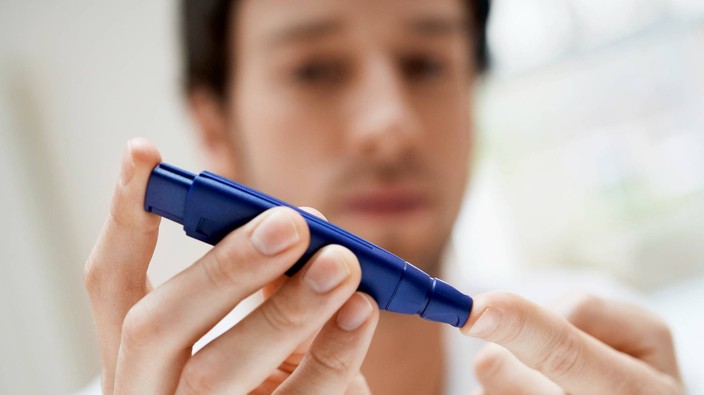people with
diabetes are 92 per cent more likely to require hospitalization to help fight an infection and face a 72 per cent greater risk of death from infection than non-diabetics, according to a new study.the research,
published in the journal diabetologia, found the association held across all sub-groups but was strongest among black patients and people below the age of 55. one in three canadians are currently living with prediabetes or
diabetes, a disease in which one’s body does not produce insulin or does not properly use the insulin it does produce,
according to diabetes canada.diabetes has long been thought to increase the risk of infection because the disease weakens the immune system’s ability to stop the spread of problematic pathogens. previous research has shown people with diabetes have an elevated risk of common and rare infections — a concerning risk factor in the age of covid-19. “from 2000 to 2015 the overall rate of hospitalization from infections in u.s. adults rose significantly, especially in people with diabetes,”
researchers wrote in the study.despite this, few studies have taken a large-scale look at how these rates of infection hospitalization — and their outcomes — differ between diabetics and non-diabetics in the general population over time. to address this, researchers used data from the atherosclerosis risk in communities (aric) study to identify a group of 12,379 u.s. participants who underwent clinical examinations and other lab tests between 1987 and 1989 and then returned for seven follow-ups that stretched into 2019.
the group, which was 54.3 per cent female and 24.7 per cent black, had a mean age of 54.5. researchers had access to detailed lifestyle and demographic data, including age, sex, race, location of study centre, health insurance status, household income and education level. the aric study also contained information on patient hospitalization that allowed researchers to include only those medical interventions that arose from an infection — particularly those associated with diabetes, such as those of the foot, respiratory system or urinary tract.over a period of 23.8 years, researchers identified 4,229 relevant trips to the hospital for infection and found people with diabetes faced an increased risk (25.4 per cent) compared to non-diabetics (15.2 per cent). once they adjusted for socioeconomic factors, researchers concluded that diabetics had an infection hospitalization rate 93 per cent higher than those without the disease and a mortality risk that was 72 per cent greater.the findings show infection prevention has never been more important, researchers said, particularly amid the emergence of covid-19, which has an outsized impact on those with the disease. “diabetes was independently associated with an increased risk of hospitalization for infection,” they wrote. “this association was observed across most major types of infection and was more pronounced for younger people and black people. the increased risk of hospitalization for infection associated with diabetes was observed across major types of infections but was especially robust for foot infections.“the risk of infection mortality was increased also for those with diabetes compared with those without diabetes. more comprehensive clinical guidance to improve infection-related preventive measures and early treatment of infection may reduce related morbidity and mortality in people with diabetes.”
dave yasvinski is a writer with healthing.cafor more information on diabetes, support or to connect with other patients, visit diabetes canada.
 2 minute read
2 minute read









